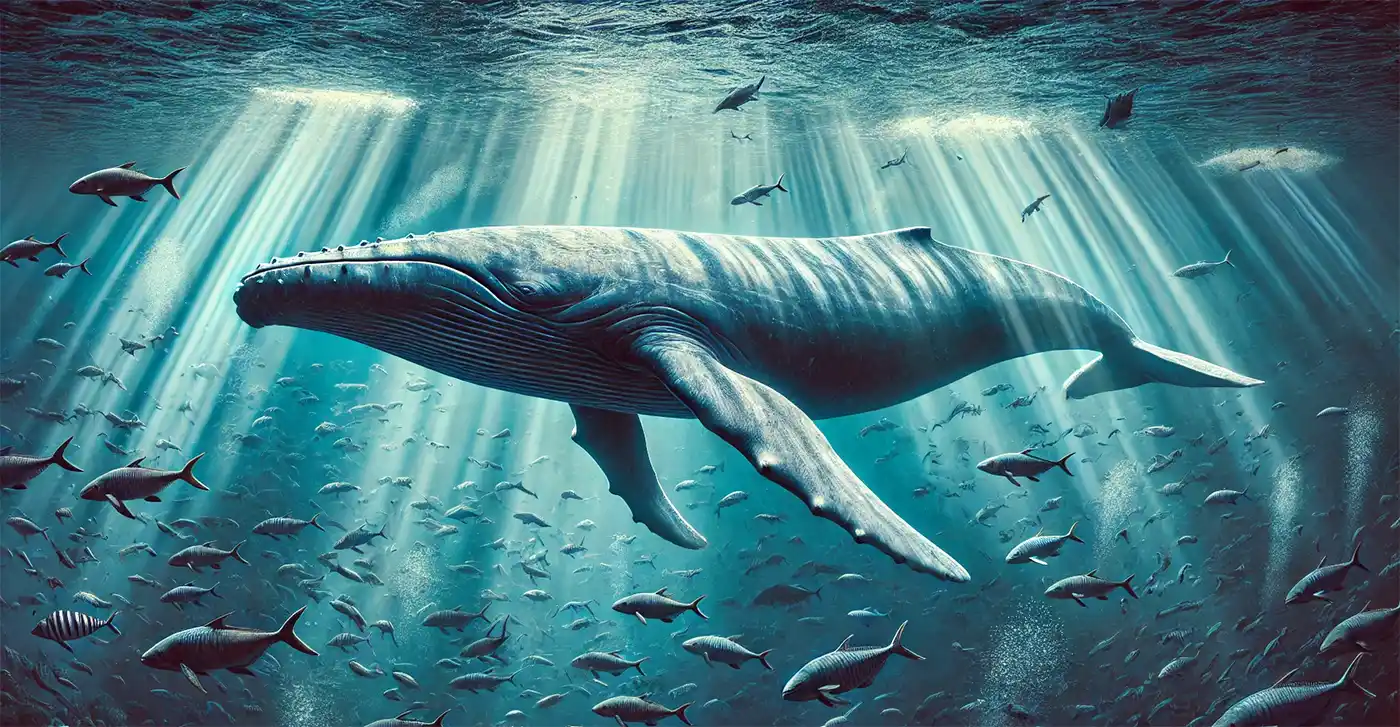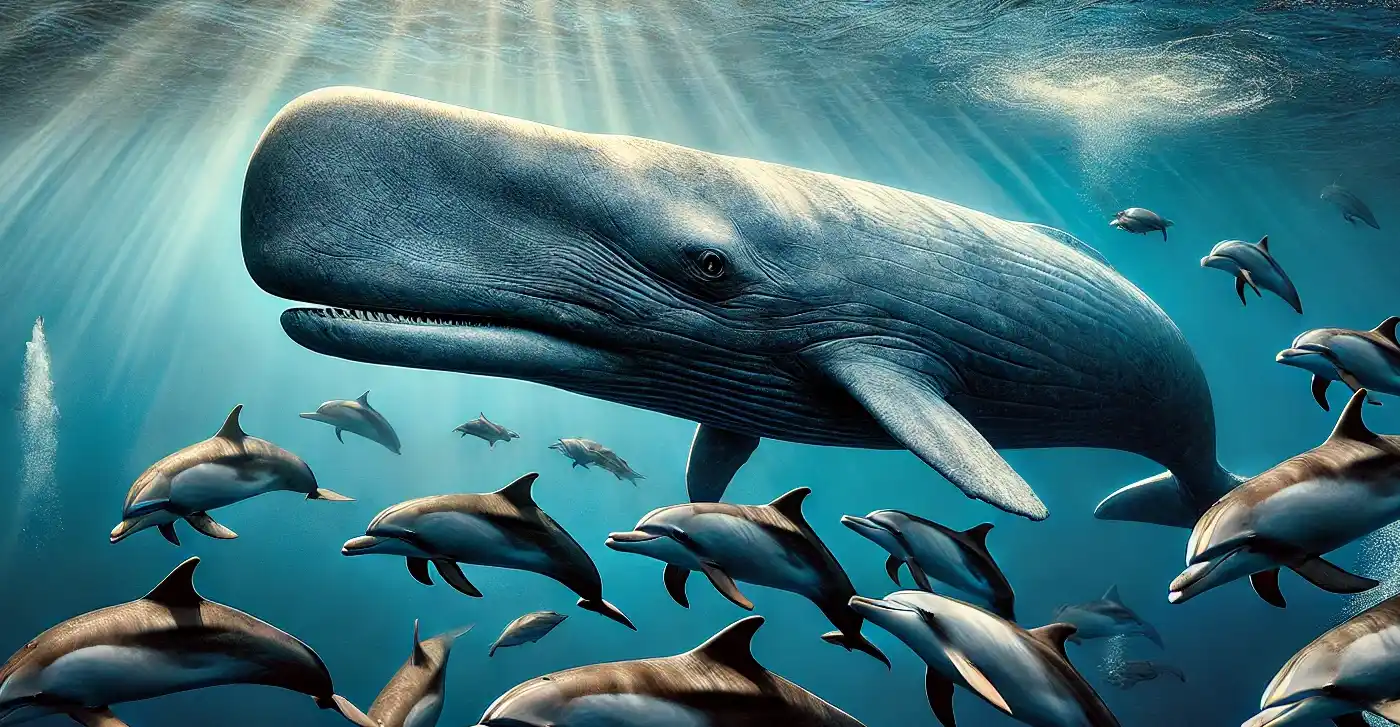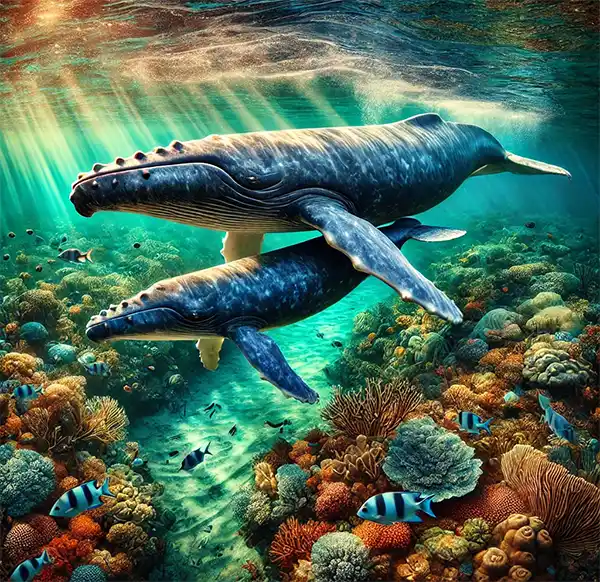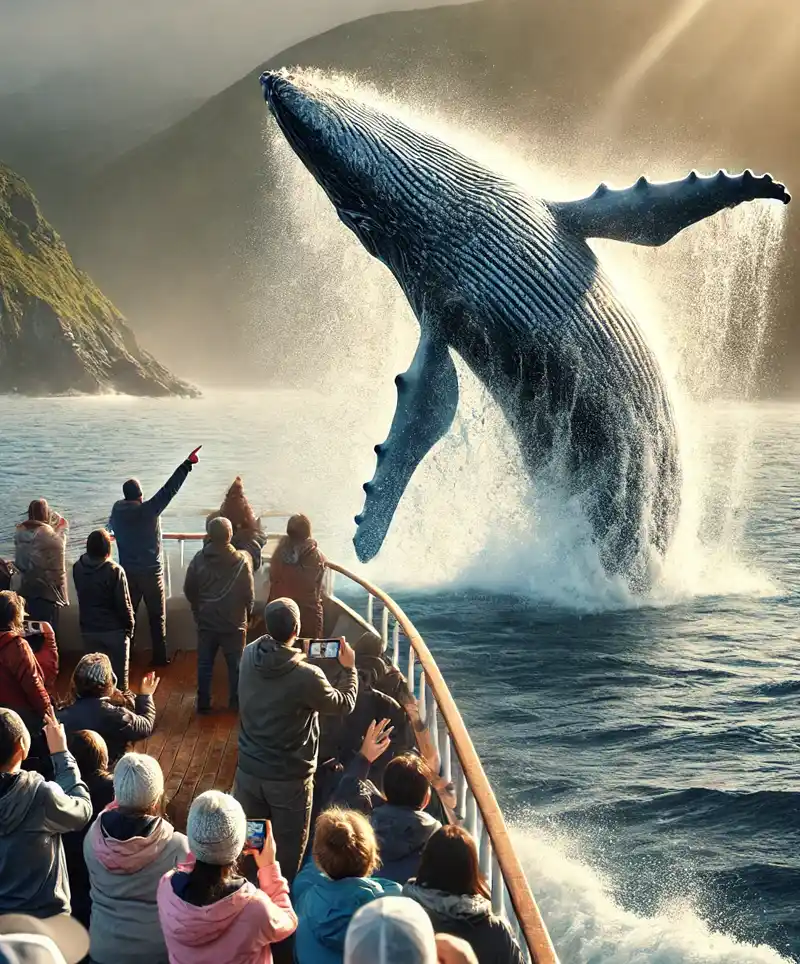The Ocean’s Gentle Giants
Every year, on the third Sunday in February, the world takes a moment to celebrate some of the most awe-inspiring creatures on Earth—whales! World Whale Day is more than just an excuse to admire their size, intelligence, and occasionally goofy behaviors. It’s a day to reflect on their vital role in the marine ecosystem, their incredible biology, and the conservation efforts needed to protect them.
So, let’s swim down into the deep blue and explore the world of these magnificent marine mammals in a fascinating and fun way.

The Origins of World Whale Day
World Whale Day was first established in 1980 in Maui, Hawaii, by Greg Kauffman, founder of the Pacific Whale Foundation. His goal? To bring attention to the humpback whales that migrate to Hawaii’s warm waters each winter and to raise awareness about the threats these incredible creatures face.
At the time, commercial whaling had devastated whale populations worldwide. Due to centuries of overhunting, many species were teetering on the brink of extinction. Kauffman and other marine conservationists believed that by dedicating a day to whales, they could inspire action to protect them and their ocean habitats.
What started as a local event in Hawaii has since grown into a global movement. Around the world, organizations and individuals now mark the occasion with educational programs, conservation initiatives, beach cleanups, and whale-watching excursions. Coastal communities hold festivals celebrating these gentle giants, complete with parades, music, and interactive exhibits. Even in landlocked areas, marine conservation groups use the day to promote whale education and ocean health awareness.
Beyond the festivities, World Whale Day serves as a critical reminder that while whales are no longer widely hunted, they still face numerous challenges. Climate change, ocean pollution, ship strikes, and noise disturbance from human activities continue to pose threats. The goal of this day is not only to celebrate whales but also to ensure their protection for future generations.
Whether you’re watching a whale breach in the wild, learning about their complex songs, or simply sharing your favorite whale fact with a friend, participating in World Whale Day helps spread appreciation for these fascinating creatures. Because, let’s face it—if any animal deserves a dedicated holiday, it’s a 100-foot-long, krill-slurping ocean opera singer.

Quirky Whale Facts That Will Blow Your Mind
Whales are already fascinating for their size, intelligence, and deep-sea prowess—but did you know they have some of the quirkiest traits in the animal kingdom? While they might seem like serious and majestic creatures, whales have plenty of weird, wonderful, and downright hilarious characteristics that make them even more lovable.
From sleeping in the strangest positions to sporting actual hair follicles on their faces, whales remind us that nature has a sense of humor. So, if you thought whales were just about grandeur and grace, get ready to have your mind blown by some of their silliest and most unexpected facts!
- Sperm Whales Take the Longest Naps: These deep-diving champions sleep vertically, floating like logs just below the surface. They take short, 10-15 minute naps, probably because it’s tough to get comfortable when you're that big.
- Whales Have Belly Buttons: Like all mammals, baby whales are born with an umbilical cord, meaning they actually have belly buttons. Just don’t expect them to wear crop tops anytime soon.
- Humpbacks Have Hair: Their tubercles (bumps on their heads) contain actual hair follicles. Whales with beards? Kind of.
- A Blue Whale's Call is Louder Than a Jet Engine: Their deep, rumbling sounds can reach 188 decibels, making them one of the loudest animals on the planet.
- Whales Can Hold Their Breath for Over an Hour: Sperm whales, the deepest diving whales, can stay submerged for over 90 minutes while hunting for squid. That’s longer than most humans can sit through a meeting without needing a coffee break.
How to Celebrate World Whale Day
World Whale Day isn’t just for marine biologists or coastal communities—everyone can join in the celebration, no matter where they live. Whether you're near the ocean or landlocked, there are plenty of ways to honor and appreciate these magnificent creatures.
 For those lucky enough to live near the coast, whale-watching tours provide an unforgettable experience. Seeing a whale breach the surface, flip its tail, or slap the water with its massive fins is nothing short of magical. Ethical tour operators ensure that their boats respect whale space and follow conservation guidelines, so you can enjoy the spectacle while keeping the whales safe.
For those lucky enough to live near the coast, whale-watching tours provide an unforgettable experience. Seeing a whale breach the surface, flip its tail, or slap the water with its massive fins is nothing short of magical. Ethical tour operators ensure that their boats respect whale space and follow conservation guidelines, so you can enjoy the spectacle while keeping the whales safe.
If you’re nowhere near an ocean, no worries! Documentaries and online events make it easy to learn about whales from the comfort of your home. Films like Secrets of the Whales, Blackfish, or The Whale Detective provide stunning insights into their lives, behaviors, and the challenges they face. Many conservation groups host virtual webinars featuring marine scientists and whale researchers who share firsthand knowledge about these creatures and their habitats.
Another impactful way to celebrate is by supporting whale conservation efforts. Organizations like the Pacific Whale Foundation, Oceana, and the World Wildlife Fund work tirelessly to protect whale populations through research, advocacy, and rescue operations. A small donation or a social media shout-out can help spread awareness and fuel their efforts.
Let’s not forget the simple but meaningful actions—reducing ocean pollution, cutting down on plastic use, and making sustainable seafood choices all contribute to a healthier ocean for whales and marine life. Even something as straightforward as educating friends and family about whale conservation can make a big difference.
So, whether you’re watching, learning, donating, or simply sharing your favorite whale fact, every effort helps ensure these incredible animals continue to thrive. Because when it comes to celebrating whales, we should all make a big splash!
Whales aren’t just incredible because of their size, intelligence, or musical abilities. They play a vital role in maintaining healthy oceans, helping regulate marine ecosystems, and even fighting climate change by storing vast amounts of carbon.
Let’s celebrate these magnificent marine mammals this World Whale Day and commit to protecting them for future generations. After all, the ocean would be a much quieter (and less entertaining) place without them.
So, here’s to whales—the kings and queens of the deep!
We got an email from a reader, Theresa, who let us know that her favorite whale is the Orca (or Killer Whale) and was a bit disappointed that we didn’t give it a shout-out. Sorry, Theresa—but here’s a fun twist! Orcas are actually part of the dolphin family, not whales. Despite their fierce name, they’re the largest members of the dolphin group. So while they might not technically be whales, they’re still incredible ocean predators and definitely deserve some love! Thanks for keeping us on our toes, Theresa!
Please Share our Content








 For those lucky enough to live near the coast, whale-watching tours provide an unforgettable experience. Seeing a whale breach the surface, flip its tail, or slap the water with its massive fins is nothing short of magical. Ethical tour operators ensure that their boats respect whale space and follow conservation guidelines, so you can enjoy the spectacle while keeping the whales safe.
For those lucky enough to live near the coast, whale-watching tours provide an unforgettable experience. Seeing a whale breach the surface, flip its tail, or slap the water with its massive fins is nothing short of magical. Ethical tour operators ensure that their boats respect whale space and follow conservation guidelines, so you can enjoy the spectacle while keeping the whales safe.








 "Sláinte!" is a traditional Irish expression used as a toast, equivalent to "Cheers!" in English.
"Sláinte!" is a traditional Irish expression used as a toast, equivalent to "Cheers!" in English.